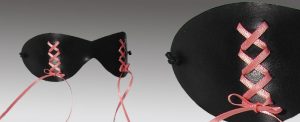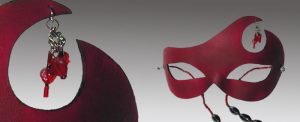I am constantly struck by the idea that writers “give up.” What does that mean, exactly? They stop writing? They stop submitting? Or they stop writing because they’re so disheartened by the submitting? My bet’s on that.
Keep on submitting and you will get published.
By “writer,” I mean good, unpublished novelists who don’t, for whatever reason, catch an agent and/or editor’s eye. I’m not talking about the people who don’t hang out on agent and editor blogs, learning every query trick in the book (some of which are flat wrong to some agents and golden to others). These are the writers who assume that the problem is with them, not with the odds.
Write a better book next time.
Oh, fuck that. It’s odds, folks, whether you want to believe it or not—and the odds get worse every week. And that write a better book bullshit? How do you know the one you just wrote is bad?
You don’t.
And then some of you will crack under the discouragement and say, “I write crap.” And you’ll stop submitting. You may even stop writing.
I did that.
I didn’t write crap, per se. I wrote slightly off-tick that didn’t hit the romance formula bullseye exactly right. Yeah, I said it. There’s a formula. I couldn’t hit it, and the misses were near enough that it was sickening.
 This is not an anti-traditional-publishing rant. This is about writers, about you and your work and how much faith you have in it.
This is not an anti-traditional-publishing rant. This is about writers, about you and your work and how much faith you have in it.
Why are you basing your goals on decisions someone else has to make? And, by extension, why are you waiting for validation based on odds that aren’t in your favor? And why are you acting like a job applicant?
You’re not powerless.
But somehow the idea of taking control of your work and presenting it to the public/the readers/the (gasp) curators is “giving up.”
Because “money always flows to the author.” Fuck that, too.
Yeah, you’ll have to assume some risk. Deal with it.
It pains me to see good writers on agent blogs talking about “when I’m published someday,” because “it will happen if I submit enough and don’t give up” and “I just have to write a better book next time.”
Stop thinking that way and start believing in your product.
Stop thinking you have no power.
Stop thinking like an employee and start thinking like an entrepreneur.
Go make your own damned job.
Update: To clarify, I’m using the term “curators” to describe the self-appointed task of the people who consume the work, like it, and recommend it to others, i.e., the readers/fans, the people who make being The Lone Artist all worth it. I’m not using the term as it has been tossed around the internet for the last year.















 Can we find a word other than “book” as a descriptive for the digital version of glue-and-paper? The word “book” is way too loaded for those who profess a love of “that new book smell” and their reactionary hatred of digital delivery.
Can we find a word other than “book” as a descriptive for the digital version of glue-and-paper? The word “book” is way too loaded for those who profess a love of “that new book smell” and their reactionary hatred of digital delivery. This is not an anti-traditional-publishing rant. This is about writers, about you and your work and how much faith you have in it.
This is not an anti-traditional-publishing rant. This is about writers, about you and your work and how much faith you have in it.